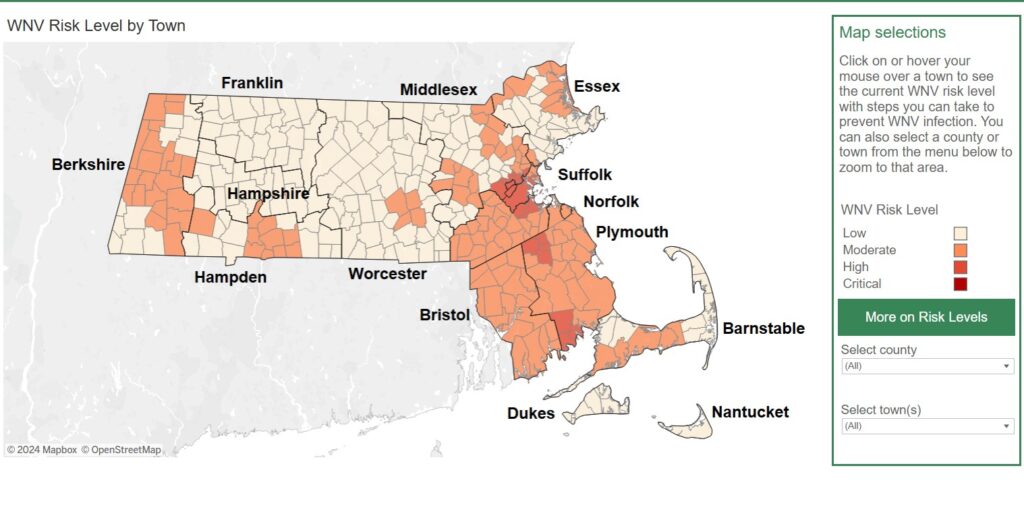The Massachusetts Department of Public Health has raised Newton’s risk rating to “high” after the deadly mosquito-borne illness was found in patients in two nearby counties.
There have been four cases of West Nile virus reported in Massachusetts this summer. Earlier this week, two new cases were found in Suffolk and Norfolk counties.
“We are finding evidence of West Nile virus in mosquitoes in multiple parts of the Commonwealth,” Public Health Commissioner Robbie Goldstein said. “While most people do not get severely ill from WNV, it is still important to take it seriously. People at greatest risk for severe disease from WNV infection include those over 60 years of age and people with certain medical conditions, such as cancer, diabetes, hypertension, kidney disease, and people who have received organ transplants.”
The state has also deemed Boston, Brookline, Cambridge, Everett, Medford, Milton, Quincy, Somerville, Watertown and Worcester high risk for the disease.

Symptoms include fever, aches, rashes, vomiting and diarrhea. Most people who contract West Nile virus don’t show any symptoms, according to the CDC, but for those who do, those symptoms can be severe and even fatal.
There is no treatment for West Nile virus, which is why public health officials urge everyone to wear long clothing, use repellent products and limit time outdoors at dawn and dusk.
Officials are also on alert for Eastern Equine Enchephilitis, another mosquito-borne illness that tends to emerge this time of year and recently killed one person in New Hampshire.